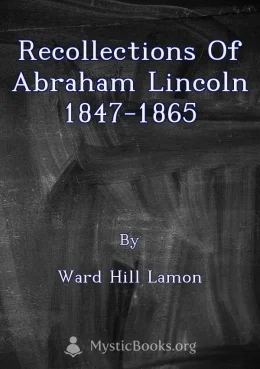
History of England from the Invasion of Julius Caesar to the Revolution of 1688, Volume 1D
by David Hume
'History of England from the Invasion of Julius Caesar to the Revolution of 1688, Volume 1D' Summary
He wrote of the Revolution: "By deciding many important questions in favour of liberty, and still more, by that great precedent of deposing one king, and establishing a new family, it gave such an ascendent to popular principles, as has put the nature of the English Constitution beyond all controversy". Thus Hume is at odds with those who argue that the British Constitution is entirely evolutionary, and did not emerge from a revolution, just like the later American and French Constitutions, and the earlier Dutch Constitution.
The source of this antinomian interpretation of British freedom can be traced in Hume's account of the revolutionary debates themselves. William of Orange had been invited to invade by a coalition of English Whigs and Tories. To placate the latter's maxim that "the throne was never vacant", or in modern parlance the monarch never dies, the fiction was agreed that King James would be said to have abdicated. It fell to the Scottish Parliamentary Convention, meeting a month after the English one: "in a bold and decisive vote", to declare "that king James, by his maladministration, and his abuse of power, had forfeited all title to the crown". Hume wanted to present the UK as having a modern constitution. He did not see it as something that stretched back seamlessly to Magna Carta or the laws of King Alfred.
The narrative ends with a parliamentary convention annexing to the settlement "a declaration of rights, where all the points, which had, of late years, been disputed between king and people, were finally determined; and the powers of the royal prerogative were more narrowly circumscribed and more exactly defined, than in any former period of the English government". In fact Britain has two declarations of right from this period. The Bill of Rights is (or was) the basic law of England, the Claim of Right that for Scotland.
There are important differences between these little studied declarations. Where the Bill of Rights states that the King cannot make laws without the consent of Parliament, the Claim of Right says that all assertions of a right to rule above the law are themselves against the law. The Bill of Rights was inspired by John Locke. Behind the Claim of Right can be detected the guiding hand of James Dalrymple, 1st Viscount of Stair 1619–1695. Hume studied law as a student at Edinburgh. He implies that he neglected this study. This must be taken with a pinch of salt. He may have wanted to avoid giving the lay reader the impression that he had written a history just for lawyers like William Blackstone. What is certain is that he names two of the founders of Roman Dutch law, Johannes Voet and Arnold Vinnius, in the same breath as Cicero and Virgil. Cicero was, of course, a lawyer. The standard work for a Scottish law student to study was, then as now, "Stair's Institutions of the laws of Scotland".
Hume names neither of the unamended constitutions of 1689. He wanted a new constitution for the United Kingdom to flesh out these outline declarations. He set out his proposals in the essay Idea of a Perfect Commonwealth, which is a reworking of The Commonwealth of Oceana by the 17th-century Rutland visionary James Harrington. Leaving the extent of the Commonwealth and the location of its capital undecided, Hume's highly devolved scheme was "to have all the advantages both of a great and a little Commonwealth". In some ways it resembles the model of Presbyterian church government. Hume was no theorist of an unwritten constitution.
Book Details
Authors

David Hume
Scotland
David Hume was a Scottish Enlightenment philosopher, historian, economist, librarian and essayist, who is best known today for his highly influential system of philosophical empiricism, scepticism, an...
Books by David HumeDownload eBooks
Listen/Download Audiobook
- Select Speed
Related books

Many-Sided Franklin by Paul Leicester Ford
'Many-Sided Franklin' delves into the multifaceted life of Benjamin Franklin beyond the traditional biographical narrative. Through Franklin's persona...

History of Greece to the Death of Alexander the Great, Vol I by John Bagnell Bury
J. B. Bury wrote his “History of Greece” before World War I, but it was such a good overview of classical Greek history that the third edition was sti...

Short History of Russia by Lucy Cazalet
Lucy Cazalet's "A Short History of Russia" provides an insightful overview of the events and figures that shaped the vast and complex nation. The book...

Mother Earth, Vol. 1 No. 3, May 1906 by Various
Mother Earth was an American anarchist journal that published articles by contemporary activists and writers in Europe as well as the US, in addition...

Old Master and Other Political Essays by Thomas Woodrow Wilson
This collection of five essays, published in 1893, explores various aspects of politics, government, and democracy in the United States. The essays de...

Reflections on the rise, progress, and probable consequences, of the present contentions with the colonies. By a freeholder. by John Erskine
This book, penned by a 'freeholder', explores the escalating tensions between Britain and its American colonies. It attempts to de-escalate the brewin...

Recollections of Abraham Lincoln 1847-1865 by Ward Hill Lamon
Abraham Lincoln's presidency was a tumultuous time in American history, marked by the Civil War and the struggle to preserve the Union. His journey to...

ΕΙΡΗΝΙΚΑ by Ioannes Polemis
Ioannes Polemis' 'ΕΙΡΗΝΙΚΑ' is a historical and political treatise that examines the complex relationship between the Byzantine Empire and the Ottoman...

Freedom's Battle by Mohandas Karamchand Gandhi
This collection of writings and speeches by Mahatma Gandhi captures his thoughts and actions during the British rule of India following World War I. '...

Handbook of Home Rule: Being Articles on the Irish Question by John Morley
The Handbook of Home Rule is a collection of essays written in 1887 that discuss the issue of Irish home rule. Home rule was a political movement that...
Reviews for History of England from the Invasion of Julius Caesar to the Revolution of 1688, Volume 1D
No reviews posted or approved, yet...